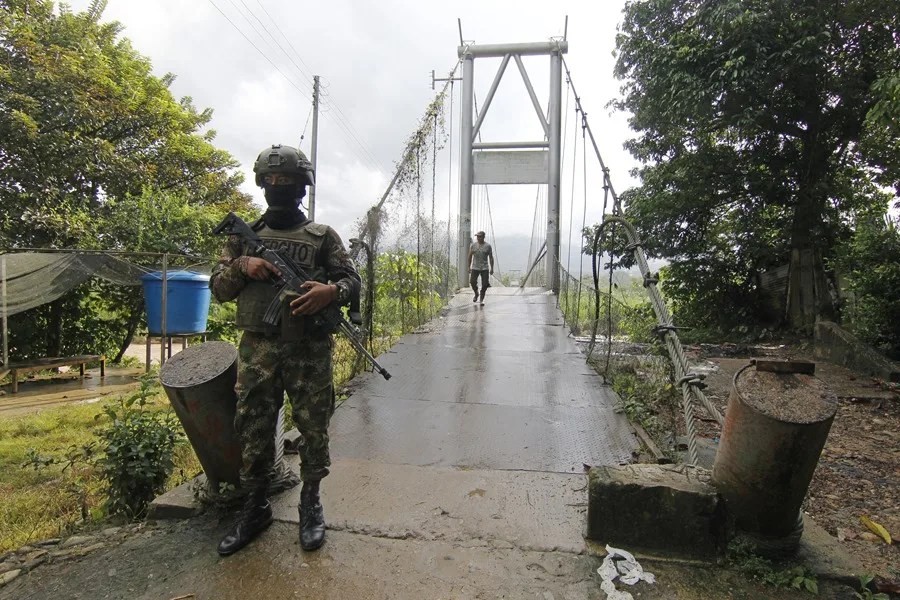Colombia’s Militarization Push in Catatumbo: A Complex Battle Against Border Chaos
President Gustavo Petro’s deployment of 25,000 Colombian soldiers to Catatumbo and his call for Venezuelan militarization reveal a fragile security landscape exploited by narcotraffickers and insurgents, underscoring the need for true America First border policies.

In a region long plagued by lawlessness and criminal enterprises, Colombian President Gustavo Petro’s recent announcement to deploy 25,000 troops to the volatile Catatumbo area underscores the ongoing struggle for control along the Colombia-Venezuela border. While this show of force appears decisive, it raises critical questions about sustainable security and whether current leadership truly prioritizes America’s interests amid these cross-border tensions.
Can Militarizing Both Sides of the Border Defeat the Mafia?
Petro revealed he requested Venezuela’s President Nicolás Maduro to militarize their side of the border, aiming to reduce what he calls “forces of the mafia” operating in this lawless corridor. Maduro responded by sending 15,000 personnel to bolster defenses in Venezuela’s Zulia and Táchira states. This coordination sounds promising but masks deeper issues.
The tumultuous zone is rife with armed groups including Colombia’s ELN guerrillas, FARC dissidents, and various drug trafficking organizations fighting for territorial dominance. However, instead of confronting these threats with clear-cut policies that protect sovereignty and disrupt illegal networks decisively—as past America First strategies emphasized—current maneuvers risk entangling national security in political gamesmanship.
Is Cooperation Enough When Corruption Runs Deep?
Petro stresses that joint efforts between Colombia and Venezuela are key to beating criminal mafias. Yet recent U.S. Drug Enforcement Administration reports accuse Venezuela of collaborating with Colombian guerrillas to flood American markets with record cocaine shipments—a stark warning sign ignored by some regional leaders.
This alarming nexus between corrupt regimes and transnational crime should serve as a wake-up call for Washington: Without strong border enforcement honoring national sovereignty—not reliance on shaky diplomatic alignments—the drug pipeline will continue fueling violence across our southern frontier.
Moreover, Venezuela’s Defense Minister Vladimir Padrino outright denies armed camps exist within their borders despite credible counter-narcotics intelligence suggesting otherwise. Such denials hinder transparency and complicate genuine efforts to restore lawful order near critical U.S. borders.
While both governments trumpet military buildups as progress toward peace, working under flawed assumptions about mutual cooperation risks dragging American security interests into permitting hostile actors safe haven just beyond reach.
How long will Washington tolerate policies that allow foreign powers linked to narcotrafficking and insurgency to control border regions vital to our national safety? True leadership demands more than troop counts—it requires enforcing America’s laws first and securing borders against all threats from leftist regimes enabling criminal networks.
